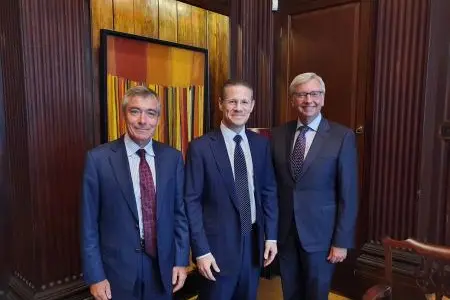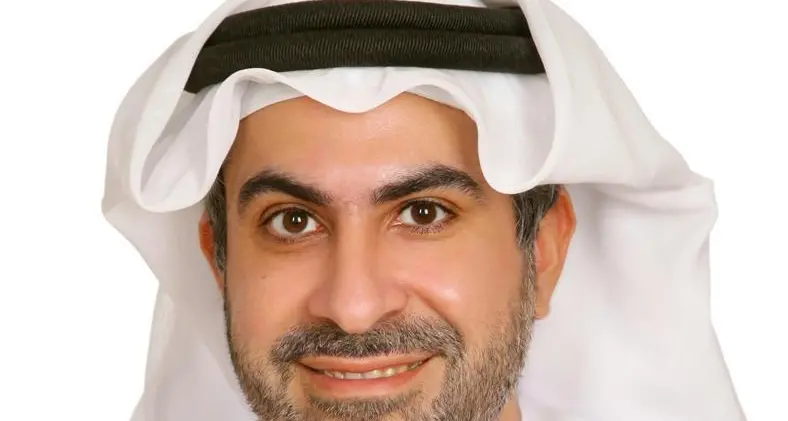PHOTO
Cambridge, United Kingdom: A new Centre for Strategic Philanthropy has been established at the University of Cambridge Judge Business School dedicated to examining strategic philanthropy within and from the world’s highest-growth markets, including the Middle East, Developing Asia, and Africa, at a time when philanthropy’s role in building social and environmental resilience is seen as increasingly essential. Through a combination of rigorous research, executive education and the convening of diverse stakeholders, the Centre aims to become the leading hub of actionable knowledge to catalyse even greater philanthropic impact from the world’s fastest growing regions. The Centre will also work with relevant institutions and practitioners in these regions in order to encourage collaboration and the sharing of knowledge and insights.
The Centre, whose founding patron is Emirati businessman Badr Jafar, is being launched in the midst of a fourth wave of globalization that is resulting in a reallocation of economic power southward and eastward. In 2019, the top 30 fastest growing economies in the world were all in emerging markets. It is estimated that many trillions of dollars will be passed on from one generation to the next in these regions over the next 10 years, with close to $2 trillion wealth transfer by 2030 within Asia alone.
According to a 2018 report by the Harvard Kennedy School, over the past 15 years, there has been a marked growth in institutional, organized philanthropy in the UAE. And the historic period of new wealth creation and intergenerational wealth transfer is expected to lead to a significant increase in philanthropic activity both within and from the UAE and other fast-growing economies.
Badr Jafar, Founding Patron of the Centre for Strategic Philanthropy, said: “Today, well over a trillion dollars of private philanthropic capital, more than triple the annual global development and humanitarian aid budgets combined, is deployed every single year. The evidence is also overwhelming that the world’s emerging economies are becoming an increasingly powerful source of philanthropic capital and social innovation. With the impending generational transition taking place around the world, it is crucial to properly understand the diverse approaches to philanthropy that exist in these markets, and the local and regional factors that have shaped them.
“Transparency, technology and evolving attitudes toward wealth are reshaping donors' approaches to giving worldwide. We will likely fail to address the myriad of challenges on the global agenda over the next decade without making a much greater effort to connect, exchange ideas and partner with strategic philanthropists from the world’s fastest growing regions.”
The growth in emerging market philanthropy could not be occurring at a more critical time. Even prior to the COVID-19 pandemic, the UN had warned an additional $2.5 trillion every year would be needed in order for the world to meet its Sustainable Development Goals (SDGs) by 2030. The current crisis has exacerbated this shortfall, with the World Bank warning that the pandemic could push up to 100 million people into extreme poverty in 2020.
Meanwhile, government budgets are coming under ever increasing pressure from the pandemic and the global downturn. The UN’s trade and development agency, UNCTAD, predicts that a $2.5 trillion rescue package is needed for the world’s emerging economies as a result of the pandemic. Philanthropic capital can play an important role in addressing this need, both on its own and in combination with other sources of funding.
Professor Stephen J. Toope, Vice-Chancellor of the University of Cambridge, said: “Our planet faces growing challenges. Climate change – threats to water and food supplies, threats to our ecology and biodiversity – growing political division, war and infectious disease.
“Global philanthropic capital must be used effectively and for maximum impact to improve our society, and the Centre for Strategic Philanthropy is very well-positioned to champion these efforts.”
Professor Christoph Loch, Director of the Cambridge Judge Business School, said: “We are seeing an explosion of wealth generation that is creating philanthropists who can, and will, reject the norms of the past. Through the work of the Centre for Strategic Philanthropy at Cambridge Judge Business School, we will be examining how we capture this diversity while also engaging with philanthropists from the target regions to support them in maximising their impact.”
The activities of the new Centre for Strategic Philanthropy will span three key areas:
- Research: The Centre will undertake rigorous research on historical trends and the output of philanthropic investments, as well as assess the nature of interventions that bring about systemic sustainable change.
- Education and training: The Centre will offer executive education to current and aspiring philanthropists and practitioners, with a focus on the importance of local social, economic and cultural dynamics. The Centre will also offer bespoke experiential workshops and explore the creation of a philanthropy accelerator to scale the impact of new philanthropic projects and organisations within high-growth markets.
- Convening diverse voices: The Centre will regularly convene academics, philanthropists, civil society, business and government leaders to discuss optimal models and practices in philanthropy. The Centre will also convene an annual Philanthropy Summit to showcase new approaches in philanthropy and host International Policy Roundtables in cities across high-growth markets.
Consistent with its mission, the Centre for Strategic Philanthropy has announced that one of its first research projects, expected to be completed in Autumn 2020, is examining responses to the COVID-19 pandemic by philanthropists and foundations in the UAE and other high-growth markets. Specifically, the study will consider whether there has been a measurable shift in focus and investment towards specific geographies (e.g. low-income countries) and towards specific sectors (e.g. health care) in response to the pandemic. It will also consider the extent to which donors have increased or decreased the size of their donations, or made changes to the typical length and conditionality of their grants – including moving to unrestricted funding – over the same period. Ultimately, it will seek to determine the extent to which changes precipitated by the COVID-19 pandemic will have a lasting impact on how philanthropy is practiced in and from these markets in the future.
Dr Kamal Munir, the Centre’s Academic Director, said: “The Centre will aim to bridge the gap between academics and practitioners in philanthropy. We hope to be able to offset the significant dearth of research in this field and help improve the transformational impact that philanthropy can achieve, when at its most creative.”
The Centre’s other research projects that are underway include a comprehensive analysis of existing research related to philanthropy in the world’s high-growth markets to understand what is already known on the subject, and a practical needs assessment being conducted in direct consultation with philanthropic practitioners, academics and other stakeholders on the ground in the world’s fastest growing regions.
Clare Woodcraft, Executive Director of the Centre for Strategic Philanthropy, said: “Around the world, philanthropy is mobilising to fund measures against COVID-19. Such efforts are more important than ever with the pandemic threatening to wipe trillions off the global economy.
“But faced with such wicked problems, funding, while necessary, is just the starting point. Global giving needs to be effective, measurably impactful, and scalable if entrenched global problems such as pandemics are to be successfully tackled.”
© Press Release 2020
Disclaimer: The contents of this press release was provided from an external third party provider. This website is not responsible for, and does not control, such external content. This content is provided on an “as is” and “as available” basis and has not been edited in any way. Neither this website nor our affiliates guarantee the accuracy of or endorse the views or opinions expressed in this press release.
The press release is provided for informational purposes only. The content does not provide tax, legal or investment advice or opinion regarding the suitability, value or profitability of any particular security, portfolio or investment strategy. Neither this website nor our affiliates shall be liable for any errors or inaccuracies in the content, or for any actions taken by you in reliance thereon. You expressly agree that your use of the information within this article is at your sole risk.
To the fullest extent permitted by applicable law, this website, its parent company, its subsidiaries, its affiliates and the respective shareholders, directors, officers, employees, agents, advertisers, content providers and licensors will not be liable (jointly or severally) to you for any direct, indirect, consequential, special, incidental, punitive or exemplary damages, including without limitation, lost profits, lost savings and lost revenues, whether in negligence, tort, contract or any other theory of liability, even if the parties have been advised of the possibility or could have foreseen any such damages.











